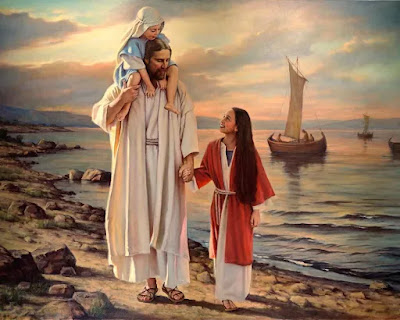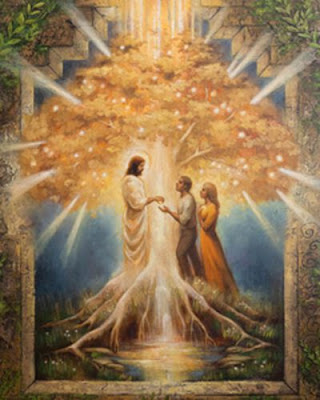When God the Father showed Enoch His corrupted children that would be swept away in the flood, He wept at the loss (Moses 7:28). Enoch was beyond perplexed when he considered that God would sorrow over a ‘handful’ of His children compared to the immensity of His creations (v 29-31). The Father simply answered that these His children were ‘the workmanship” of His own hands (v 32). The dictionary defines ‘workmanship’ as ‘the product or result of labour and skill, or work executed’.
We are told the worth of a soul is great in the eyes of God (D&C 17:10). What does that exactly mean? Does it mean our worth is great simply because we are the offspring of Deity who loves us? Well, it would seem there is more to it than that. If ‘workmanship’ insinuates investment of labour and skill, the worth cannot be purely in the birth alone. To arrive at the estimate of the worth, consider all the ‘work’ that went into the making of YOU: 1. Your spiritual creation which depended on the Father’s rise to Godhood; 2. Your spiritual tutoring for eons of time; 3. The creation of the earth for your mortality; 4. Overseeing of your earthly tutoring; 5. Preparation of kingdoms for your eternal destination; 6. The redemption of your soul through sacrifice of another. Now think of the scale of guidance, protection, care, overseeing, anguish and sorrow of your Heavenly Parents, the Holy Ghost, your guardian angels, your ancestors, your departed loved ones and all the hosts of heaven who know you….and not just what others have put into you but what you have put into yourself….and not just in this life but before you even came here. Consider the following:
“During the ages in which we dwelt in the pre-mortal state we not only developed our various characteristics and showed our worthiness and ability, or the lack of it, but we were also where such progress could be observed…..The heavenly beings were living in a perfectly arranged society. Every person knew his place…..Ordinances pertaining to that pre-existence were required and the love of God prevailed. Under such conditions it was natural for our Father to discern and choose those who were most worthy and evaluate the talents of each individual. He knew not only what each of us COULD do, but also what each of us WOULD do when put to the test and when responsibility was given us” (Joseph Fielding Smith, The Way to Perfection, pp 50-51)
“In the prior life, we developed various capacities and talents. Some developed them in one field and some in another. The most important of all fields was the field of spirituality, the ability, the talent, the capacity to recognise truth” (Bruce R. McConkie, When Thou Art Converted, Strengthen Thy Brethren, A Study Guide for the Priesthood Quorums of the Church, 1974-75, pp 8-9). This spiritual development was not only important for our own salvation but for others. Abraham confirmed this when he spoke about all the great and noble intelligences that were organised before the world was (Abraham 3:22-23). Joseph F. Smith spoke of the many others besides the prophets who received their first lessons in the world of spirits to prepare them for the work of salvation in this life (D&C 138:55,56).
Obviously, we achieved a lot before we were even born into mortality. What price would you put to all the work that you put into you and the investment of others into you??? I know two things: the price would be higher than we can possibly imagine; and I know who paid it.
Surely Christ’s supreme sacrifice for all
mankind is the crescendo of all the work invested into each soul ever born on
this earth, of every creed, of every colour, of every nation. The Atonement is
the crowning glory of the work that has gone into you and me. All the prior
work that had been put into us would be in vain if there was no Atonement, and
even more importantly, there would be no future for any of us, and the future
is what counts, because it ensures our rightful place in the eternal scheme of
things. It completes the Plan, it ensures the success of the Plan, it validates
the ‘workmanship’ and preserves its value. So with all the labour, material,
and struggle that has gone into your creation and development, how much do you
think your soul is worth?
- CATHRYNE ALLEN
(Art: Worth Of A Soul by Liz Lemon Swindle)










